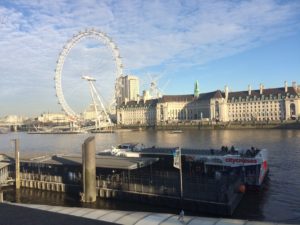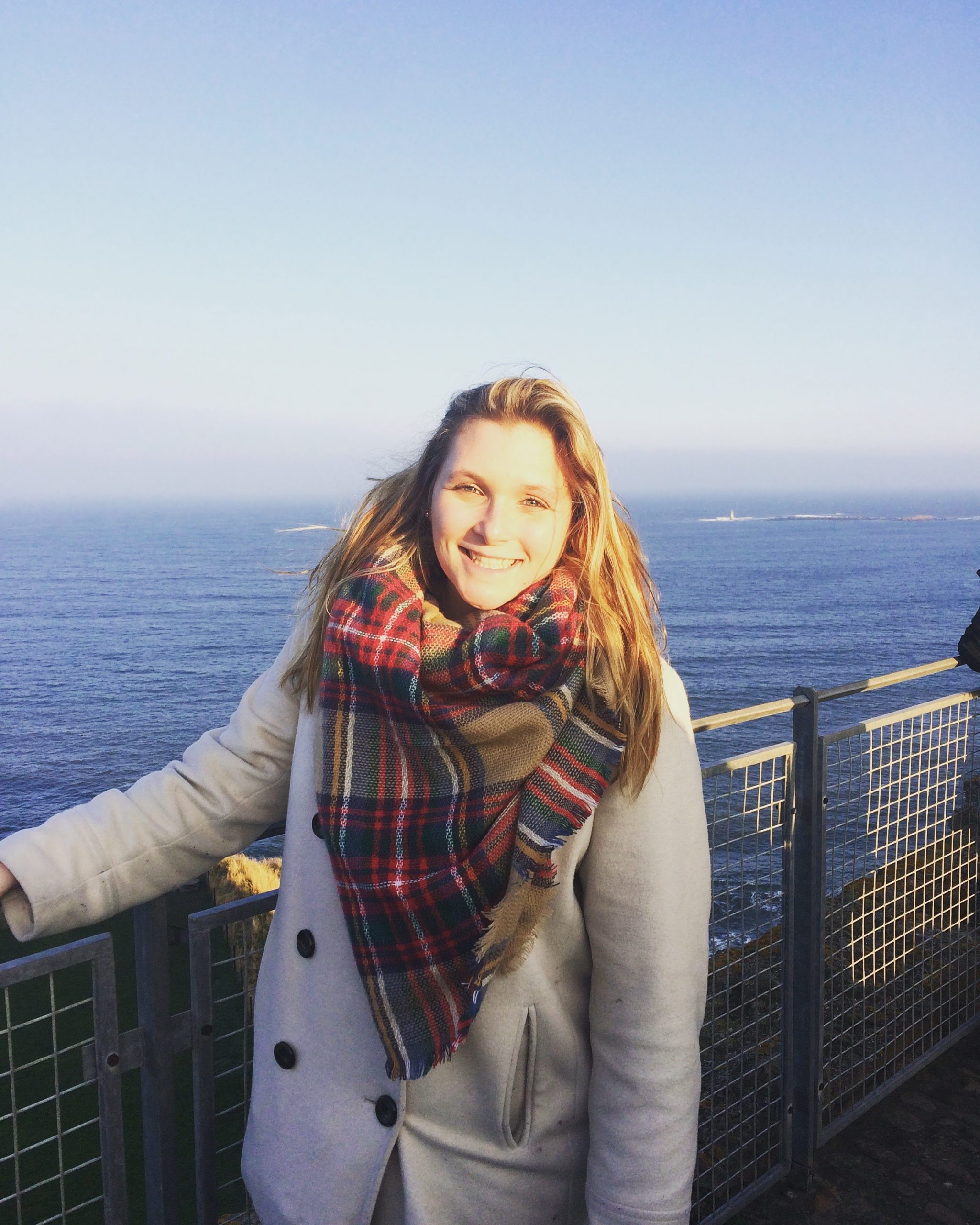I have just returned from an absolutely wonderful J-Term abroad experience (and I have the jet lag and luggage stress to prove it, thanks Delta)! All these temperaments aside, I can truly say that if you ever have the chance to travel to the United Kingdom, do it!
Grasp the opportunity to witness many museums, castles in various states of ruin or construction, bustling people, and an excellent public transportation system, not to mention the wealth of an expansive history! I went abroad with fourteen other students, and most of the sites that London and Edinburgh had to offer were jammed into twenty-six days.
Our course was centered around fantasy and folklore, and how they can relate to social justice. We used most of our time touring sites in the two cities that related to fantasy and folklore, and then relating them to social justice topics, or vice versa. These included sites like the Rollright Stones in England, ancient sites based on a legend of a king and his men turned into the circular stone formation by a witch, which is now a spot for Pagan groups’ rituals. Another similar site is Mary King’s Close in Scotland, a world hidden underground, kept away from the public eye when the City Council’s building was built literally on top of it, so the tenants were forced out of their homes. Discovering these sites and plenty more, we spent the first two and a half weeks in England, mostly around the London area, taking day trips to Wales and Oxford, and ended our trip in Scotland.
London has vast opportunities for activities, from sitting down to dinner and ale at a local pub, to roaming around museums of various subjects.

Some of the museums we toured include the Victoria and Albert Museum, the Wellcome Collection (a collection of odd objects acquired in the life of Henry Wellcome, that also features different exhibits), the Foundling Museum (formerly a hospital for foundling children, ridden with poverty, living on the streets of London), and the Viktor Wynd’s Museum of Curiosities (literally a place that features celebrity feces in jars, many taxidermic animals, haunted artifacts, and a corpse inside a table)!
While the Wynd museum was fabulously odd and creepy, my favorite part of the trip was seeing the different castles and architectural monuments around England and Scotland.
So, when you go to London, it’s almost obligatory to see Buckingham Palace (you know, that big one where Her Majesty Queen Elizabeth II does her business). Unfortunately, a palace tour costs money, and the exchange rate from the dollar to the pound did not work with our budget. Thus, I was satisfied with standing outside the palace, taking many pictures and actually sticking my head through the gate.
We also toured the Kensington Gardens, where Kensington Palace is located, the place of residence of the Duke and Duchess of Cambridge, and their cute children, George and Charlotte (yes, I watched both royal baby coverages). Buckingham Palace provided an excellent photo opportunity, but the true magic of the United Kingdom comes from the architecture, like castles, churches, monuments, and university buildings, like Oxford and the University of Edinburgh.
The extensive history of the United Kingdom is really fascinating to me, as an English major with a History minor. It was thrilling to tour ruins and discover how they once fit into society, and discover what their present role entails as well. On our day trip to Wales, we explored Tintern Abbey and Chepstow Castle, and it was a collective favorite day among the group. Tintern Abbey was abandoned after the Dissolution of the Monasteries in the 16th century, falling into complete ruin, similar to Chepstow Castle.
There are also important castles, in various states of ruin, in Scotland that are quite popular nowadays, including Doune Castle. It might be recognizable as the castle in the French argument scene from the 1975 classic Monty Python and the Holy Grail.
Doune Castle was also the set of Winterfell in the pilot episode of Game of Thrones, and is the castle in the hit series Outlander. Two more important castles of Scotland include Edinburgh Castle and Tantallon Castle. Edinburgh Castle was the home of many prisoners throughout the wars of Britain’s history, and also an intense stronghold.
Tantallon Castle has a similar background, but now mostly in ruins, is a simply stunning seaside castle in East Lothian. Both of these castles are great places for history (or excellent panorama shots, whatever you prefer).
I would also recommend the Tower of London, specifically, because of its intense weapons armory, prisons, and, naturally, the Crown Jewels. Other fascinating architectural monuments include basically all of Oxford University (boasting upwards of 30 different colleges, and locations from Harry Potter like the Great Hall, a few of the hallways, and the tree under which Malfoy is turned into a white ferret).
Scotland has an entire hill, Calton Hill, that boasts fabulous city views and historical monuments, like the incredibly tall Nelson Monument.
If you’re feeling adventurous, you can climb the 287 steps to the top of the Scott Monument, devoted to one of Scotland’s most famous authors and poets, Sir Walter Scott.
I would also like to point out Rosslyn Chapel, the final destination of Dan Brown’s The Da Vinci Code, which has just about the most amazing wall carvings you will ever see. England and Scotland also boast fabulous shopping, restaurants, and many popular theatre shows.
We were blessed to see some of London’s famous West End theatre shows, including Wicked, The Woman in Black, and Wonderland in Edinburgh. Some members of my group also attempted to get same-day tickets to see The Book of Mormon, but while we were expecting a price of 20 pounds, in reality, the price was 50-150 pounds for tickets. The pub scene and nightlife are quite excellent, and I don’t believe you will ever be bored if you travel to London, England, or Edinburgh, Scotland. I’m not even going to begin to describe the Making of Harry Potter at Warner Brothers Studios, but it’s stupendous.
